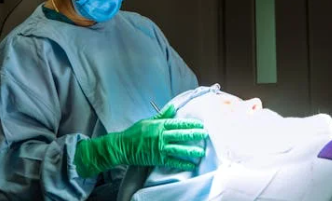Introduction
In the medical field, biocompatibility is crucial when selecting materials for devices and implants. Silicone resins, known for their excellent durability, flexibility, and resistance to environmental stress, have emerged as a groundbreaking material in various medical applications. This article will explore the innovative uses of medical silicone resins, particularly in prosthetics, catheters, wound dressings, and other healthcare solutions.

Biocompatibility of Silicone Resins
-
Chemical Inertness: Silicone resins are chemically inert, meaning they do not react with bodily fluids or tissues, reducing the risk of irritation or rejection when used in medical devices.
-
Low Toxicity: These materials exhibit very low toxicity, making them suitable for long-term implantation in the body. Silicone resins are non-carcinogenic and do not release harmful substances over time.
-
Durability: The long-lasting nature of silicone resins ensures that medical devices remain effective and intact for extended periods, even under the stresses of bodily movements and environmental conditions.
Applications in Medical Devices
-
Prosthetics: Silicone resins are used to create lifelike prosthetics for patients who have lost limbs or other body parts. These resins can be molded to exact specifications and offer a soft, flexible surface that mimics human skin.
-
Catheters and Tubing: Silicone resins provide excellent flexibility and resistance to chemical breakdown, making them ideal for use in catheters, tubing, and other medical implements that require durability and biocompatibility.
-
Wound Dressings: Silicone-based wound dressings have become increasingly popular due to their ability to create a moist healing environment while preventing infection. The gentle nature of the material makes it ideal for sensitive skin areas.
-
Implants and Medical Coatings: Silicone resins are also used as coatings for implants and medical devices to improve their durability and biocompatibility, ensuring a longer lifespan for these crucial healthcare tools.
Future Prospects
As medical technology advances, the demand for more biocompatible and durable materials will continue to rise. Silicone resins, with their ability to withstand harsh bodily environments, will likely see expanded use in complex surgical implants, drug delivery systems, and diagnostic equipment.
Conclusion
Medical silicone resins are at the forefront of innovations in biocompatible materials, offering solutions that enhance the quality of life for patients around the world. Their applications in prosthetics, catheters, wound care, and more highlight their versatility and importance in the medical field.
Disclaimer
The content provided here is sourced from the internet, public platforms, and other publicly available channels. We maintain a neutral stance on the opinions expressed within. This article is for reference and exchange purposes only. The copyright of any reproduced content belongs to the original authors and institutions. If there are any infringements, please contact us for removal.
To learn more, click here https://www.siliconeresin.net/
